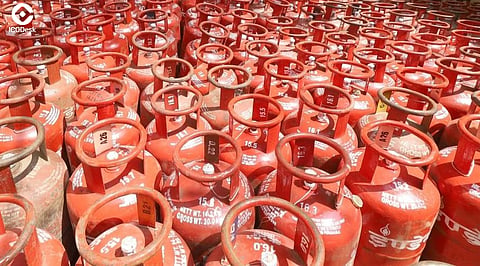

In a relief to hotels, restaurants, and small enterprises, the cost of commercial LPG cylinders fell by Rs. 51.50 per unit on Tuesday. The price correction, which takes effect from September 1, is part of the monthly review conducted by state-owned oil marketing firms (OMCs).
A 19-kg commercial LPG cylinder in Delhi will be available for Rs. 1,671.50, down from Rs. 1,723 previously.
The reduction is expected to provide a cushion for the food and hospitality industry, which is mainly reliant on commercial LPG to operate on a day-to-day basis. Members of the industry have welcomed the reduction to help offset rising input costs.
However, the retail prices of 14.2-kg domestic LPG cylinders used by households for cooking have not been reduced. The retail price paid for domestic LPG in Delhi remains at Rs. 903, providing no direct relief to families.
Along with LPG price adjustments, aviation turbine fuel (ATF), the primary fuel for aircraft, experienced a 1.4% decrease, the second successive monthly reduction. With this change, the cost of ATF in Delhi has been reduced by around Rs. 1,800 per kilolitre, to Rs. 1,25,000 per kilolitre.
This action is expected to provide relief to airlines struggling with high operating expenses and stabilize airfares, which tend to fluctuate in response to fuel price changes.
Prices of fuel in India are revised at the start of each month based on international benchmark prices and movements in foreign exchange. Crude oil prices have moderated slightly over the last few weeks, and that has helped bring down the commercial LPG and ATF prices.
Even while declining commercial LPG and ATF prices, the stationary domestic LPG price is worrisome for consumers, particularly in urban and rural households where fuel inflation has strained budgets.
Government support of LPG is reserved in specified beneficiary groups for the Pradhan Mantri Ujjwala Yojana, with many of the middle class and non-subsidised consuming classes having to bear the current price.
Analysts observe that the government has stayed away from changing domestic LPG prices before the festive season, perhaps to ensure fiscal prudence. Any cut in cooking gas prices for households generally has significant subsidy implications, placing a greater burden on state finances.
For the aviation and hospitality sectors, though, the new cuts are likely to provide much welcome relief. While LPG-dependent businesses will enjoy modest relief, airlines may employ the ATF cut to prune ticket prices over the next few weeks.
Overall, the September fuel price revision is an exercise in a careful balancing act - granting relief to commercial consumers and airlines while refraining from domestic LPG cuts due to subsidy issues.